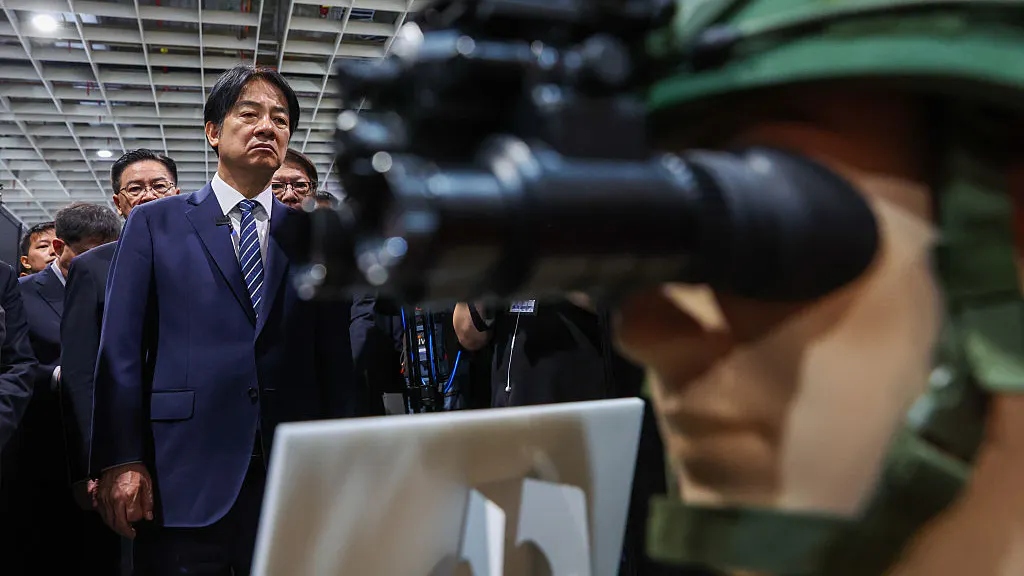The United States’ approval of a $330 million arms sale to Taiwan on Thursday represents both a symbolic and strategic turning point in U.S.-Taiwan relations under President Donald Trump’s second term.
The package — covering spare and repair parts for Taiwan’s fleet of F-16 fighter jets, C-130 transport aircraft, and other military planes — marks the first U.S. arms transfer to the island since Trump returned to office in January. While modest in dollar value relative to past transactions, the approval underscores Washington’s continued commitment to Taiwan’s defense amid escalating Chinese military pressure.
The Pentagon described the deal as vital for maintaining the operational readiness of Taiwan’s air fleet and improving its capacity to meet “current and future threats.” By ensuring Taiwan’s aircraft remain mission-capable, the sale strengthens the island’s ability to counter frequent “gray-zone” incursions — non-combat pressure tactics by China that test Taiwan’s air defenses through near-daily aerial and maritime patrols.
The sale is expected to take effect within a month, according to Taiwan’s Ministry of National Defense, which praised Washington for sustaining a regularized schedule of support. Taipei’s presidential office thanked the U.S. for continuing its long-standing arms sales policy, calling the deepening defense partnership a cornerstone of peace and stability across the Indo-Pacific.
Taiwan’s appreciation contrasts sharply with Beijing’s fury. The Chinese Foreign Ministry reiterated that the “Taiwan question” remains the “first red line” in China-U.S. relations, calling the sale a serious violation of the one-China principle and the three bilateral joint communiqués that frame diplomatic engagement. China, which claims Taiwan as part of its territory, warned that such U.S. actions interfere in its internal affairs and damage its sovereignty.
In recent years, Beijing has imposed penalties on defense companies linked to Taiwan arms sales, including Lockheed Martin, Northrop Grumman, and General Dynamics. These sanctions, ranging from property freezes to entry bans on executives, have become Beijing’s primary diplomatic tool to protest U.S. military support for the island.
Under the Taiwan Relations Act (TRA), passed in 1979 after Washington severed formal ties with Taipei, the United States is legally bound to provide weapons of a “defensive character.” While maintaining unofficial relations, Washington remains Taiwan’s most significant arms provider and security partner. The Trump administration’s approval of the $330 million sale reflects continuity with that legal mandate while signaling that U.S. strategic interests in the Indo-Pacific still hinge on preventing Chinese coercion.
This latest transaction follows a series of U.S. arms sales over the past two years, including a $75 million package in February 2024 and a $385 million package in November 2024, both of which aimed to upgrade Taiwan’s communications, radar, and fighter capabilities.
Collectively, these deals address a significant delivery backlog — valued at more than $21 billion as of early 2025 — that has long constrained Taiwan’s defense modernization. The recent approval also comes shortly after the 24th U.S.-Taiwan Defense Industry Conference in Maryland, where officials projected that arms sales could reach record levels in 2026 once Taipei passes its new multi-year defense budget, potentially exceeding 3% of GDP.
The latest sale thus serves as a reaffirmation of Washington’s strategic resolve to equip Taiwan with the means of self-defense while recalibrating relations with Beijing amid regional power competition. For Taipei, the decision reinforces deterrence and operational endurance against China’s intensifying military drills.

.png)
.png)

